How did police miss Barking serial killer Stephen Port?
- Published
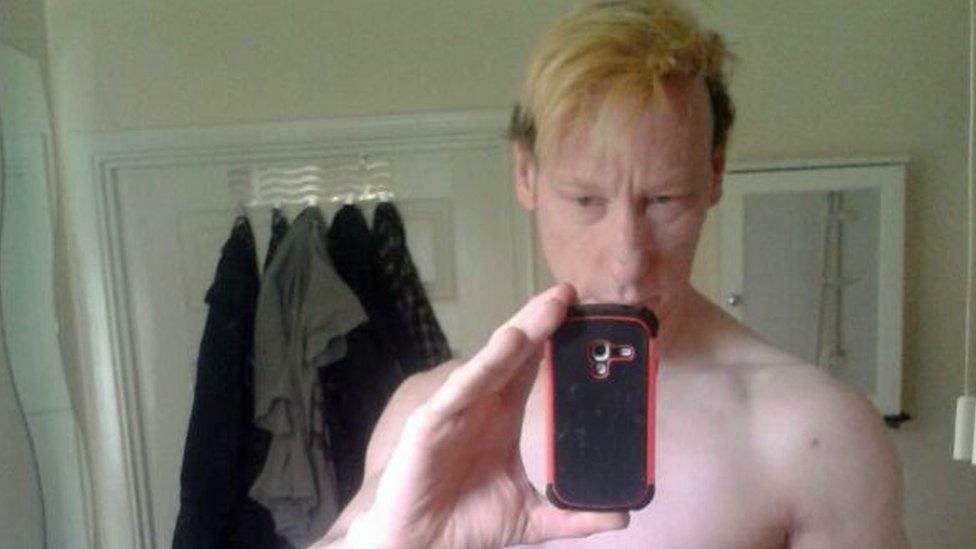
Stephen Port has been found guilty of murdering four young gay men and committing a number of drug rapes. But did police miss chances to stop him in his tracks?
At the end of summer 2014, three weeks apart, the bodies of two young men were found in the same east London churchyard by the same woman walking her dog.
Both men were of a similar build. Both in their twenties. Both propped up in the same position in the graveyard.
Both men were gay. Both died from drug overdoses. Neither came from Barking, the area in which they had been found.
Police deemed the deaths of the men found in the churchyard, Gabriel Kovari and Daniel Whitworth, to be non-suspicious.
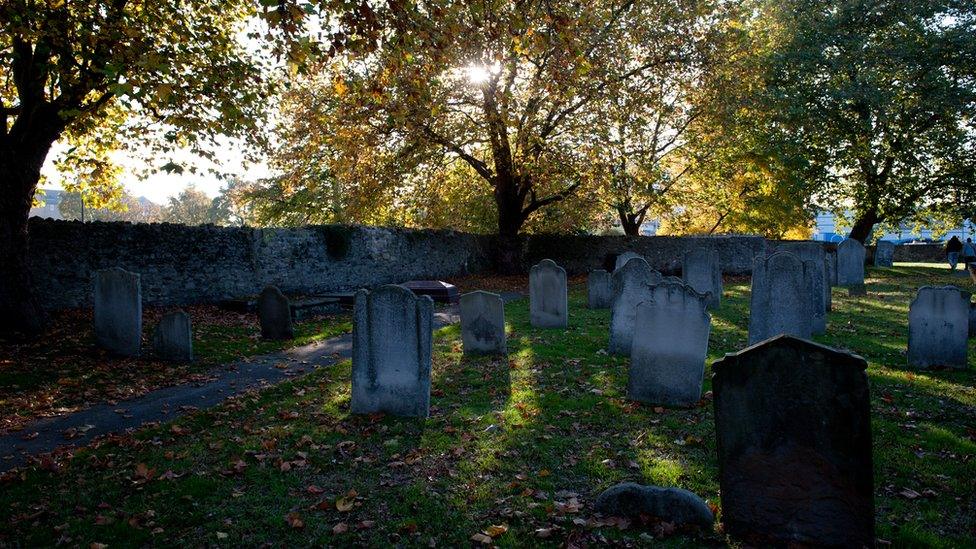
An apparent suicide note found with Whitworth's body appeared to explain what had happened. Kovari had died after taking drugs during sex, the note said, and a guilt-stricken Whitworth had taken drugs in order to end his life, it suggested.
But a year later - in September 2015 - another body was found, propped up on the other side of the churchyard wall. Again it was a young gay man - Jack Taylor - who had died of a drug overdose.
How could this be coincidence? Three men found dead within a few feet of each other.
But the key to the case was another man, Anthony Walgate, who had died nearby before any of the others.
He had been found only a few hundred yards from the church, outside the flat of a man named Stephen Port.
The truth was that Port had killed all four men and then fooled the authorities with a cover-up that, while elaborate, should have been easily uncovered.
Tracking Stephen Port's movements from his flat to where he dumped his victims' bodies
Anthony Walgate wanted to be a fashion designer. Born and raised in Hull, he had come to London and was studying at the University of Middlesex.
At 04:18 on Thursday 19 June 2014 the ambulance service received a call to report an incident on Cooke Street, Barking.
"There's a young boy, looks like he's collapsed outside," the caller said.
He could have "had a seizure or something, or just drunk".
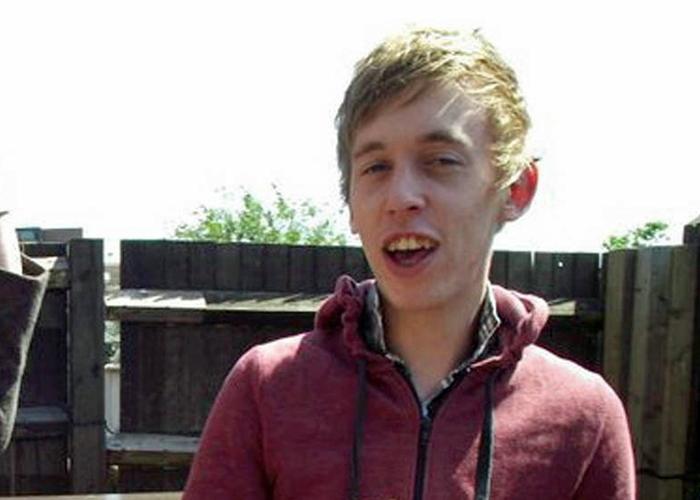
Anthony Walgate
Paramedics and police officers found a young man, a black holdall bag resting next to him, sitting against a wall. He was dead.
There were no signs of struggle or injury, but police noticed that the man's top was pulled up, exposing his midriff, as if he had been dragged.
His bag held a dark brown bottle containing a small amount of liquid, but his mobile phone was missing.
19 June 2014: Stephen Port's 999 call
The nearest CCTV camera, on a roundabout, was found to be faulty.
The 999 call had been made by Stephen Port. After meeting his flatmate outside, police entered 62 Cooke Street to find Port asleep in bed.
In a witness statement, Port told police he had come home at 04:00 after a nightshift to find a man lying in front of his door and "tried to rouse him by slapping his face".
He said the man made a "gurgling" noise. Propping the man against a wall, he called an ambulance before going indoors and falling asleep.
Port was lying.
Officers soon found Walgate had been hired as an escort by Port.
The student had been occasionally escorting since 2012.
Taking his usual precautions, he had told friends about a job in Barking and shown them a picture of the man he was going to meet.
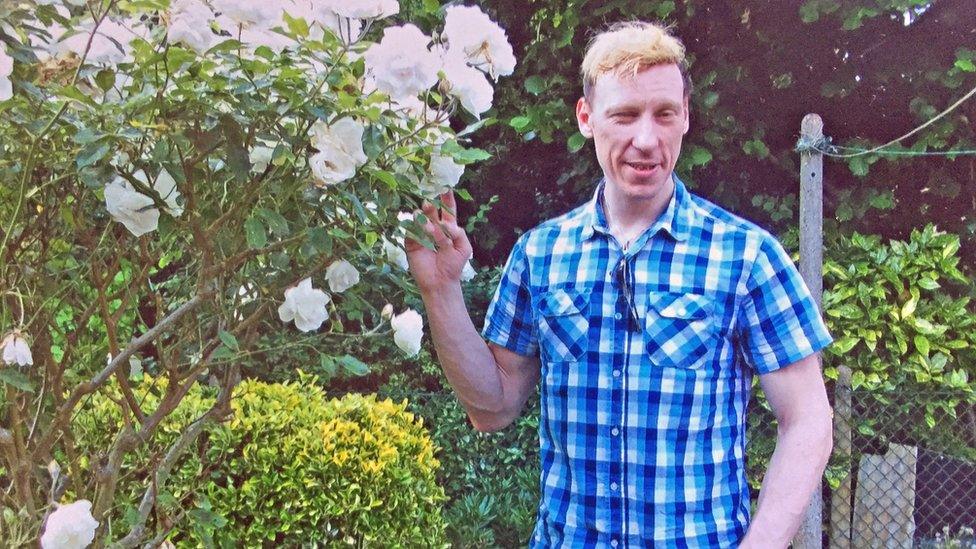
Stephen Port
When officers discovered the man was Port, they arrested him on 26 June 2014 on suspicion of perverting the course of justice. As well as the lies in his statement, he was suspected of taking Walgate's phone.
Interviewed over two days, Port initially stuck to his original account. Later he asked detectives: "Can I just say for the scenario - if it was an accident, and if he did have a fit in my place, is that still my fault?"
Port eventually changed his story and said he had contacted Walgate on an escort site.
At the flat, according to Port, Walgate had taken drugs that he had brought.
After twice having sex, Port said, Walgate became suddenly tired when getting ready to leave and had gone to bed wearing his clothes and shoes.
The next day, after leaving Walgate snoring when he went to work, Port said he had returned late at night to find him still in a deep sleep.
Port told officers he had got into bed himself but panicked after waking about 03:00 to find Walgate rigid.
He carried Walgate outside before fetching his bag. He worried "they're gonna think I murdered him or something".
Port denied knowing what had happened to his mobile phone.
Police searched Port's flat and seized a laptop computer. They also later took samples of his DNA.
But despite police seeking early advice from a homicide assessment team, the case was never treated as a murder.
He was bailed and the Crown Prosecution Service was asked to decide whether he should be charged with perverting the course of justice.
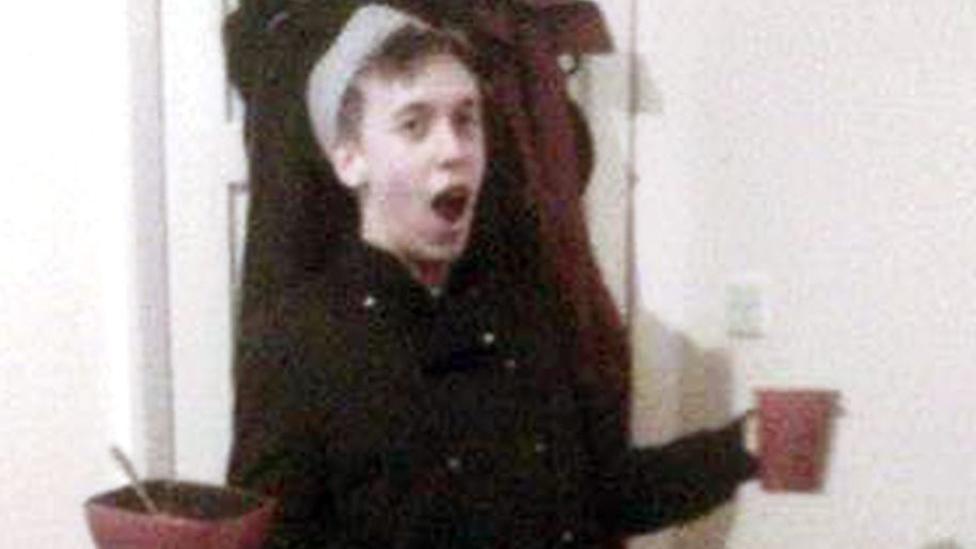
Anthony Walgate dreamed of being a fashion designer
Blood and urine samples eventually showed levels of the drug GHB associated with fatal overdoses.
But police did not examine the computer seized from Stephen Port, despite prompting from those close to Walgate.
If they had, they would have found alarming evidence.
On 13 June 2014, Port first accessed Walgate's escort profile. Within minutes he had conducted a series of searches on Google and pornography websites.
A few of the search terms he used that day were: "sleeping boy", "unconscious boys", "drugged and raped", "taking date rape drug", "gay teen knocked out raped" and "guy raped and tortured young nude boy".
Walgate's university friends pressed the police to do more.
"We had to badger them and almost feed them ideas," says China Dunning. "I'd be like, 'have you looked [through] his laptop'... and they'd be like 'it's a really expensive procedure to do that'."
Kiera Brennan says the same: 'They fobbed us off constantly… They kept saying 'we're going to, we're going to' and then didn't. And every time we phoned the police officer at the time who was dealing with us he was either not there or someone would take a message and he'd never call us back."
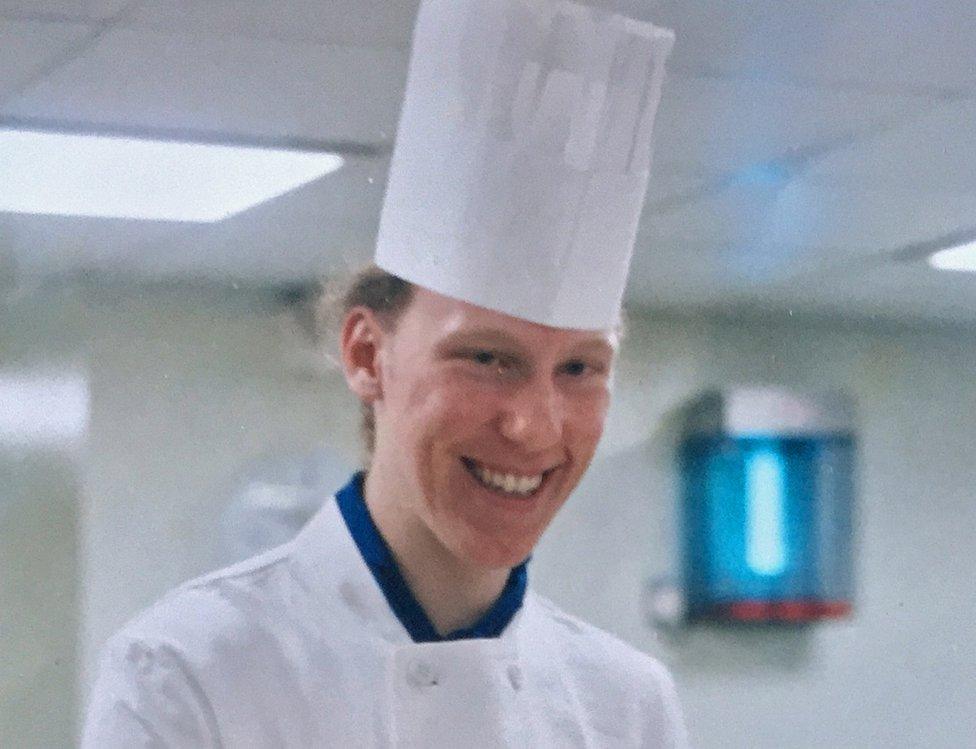
Port worked as a chef at a bus garage
Stephen Port was born in 1975 in Southend, Essex. At a year old, his family moved to Dagenham in east London, where his parents still live.
His father, now retired, worked as a cleaner for the local council and his mother as a supermarket cashier.
Aged 16, Stephen went to art college, but it proved too expensive for his parents and he spent two years training as a chef instead.
He found kitchen work at local businesses, events and weddings, before eventually settling at West Ham bus depot where he cooked for drivers and staff.
He came out as gay in his mid-twenties. Port left home in 2006 for a small flat in Barking, close to where he had grown up.
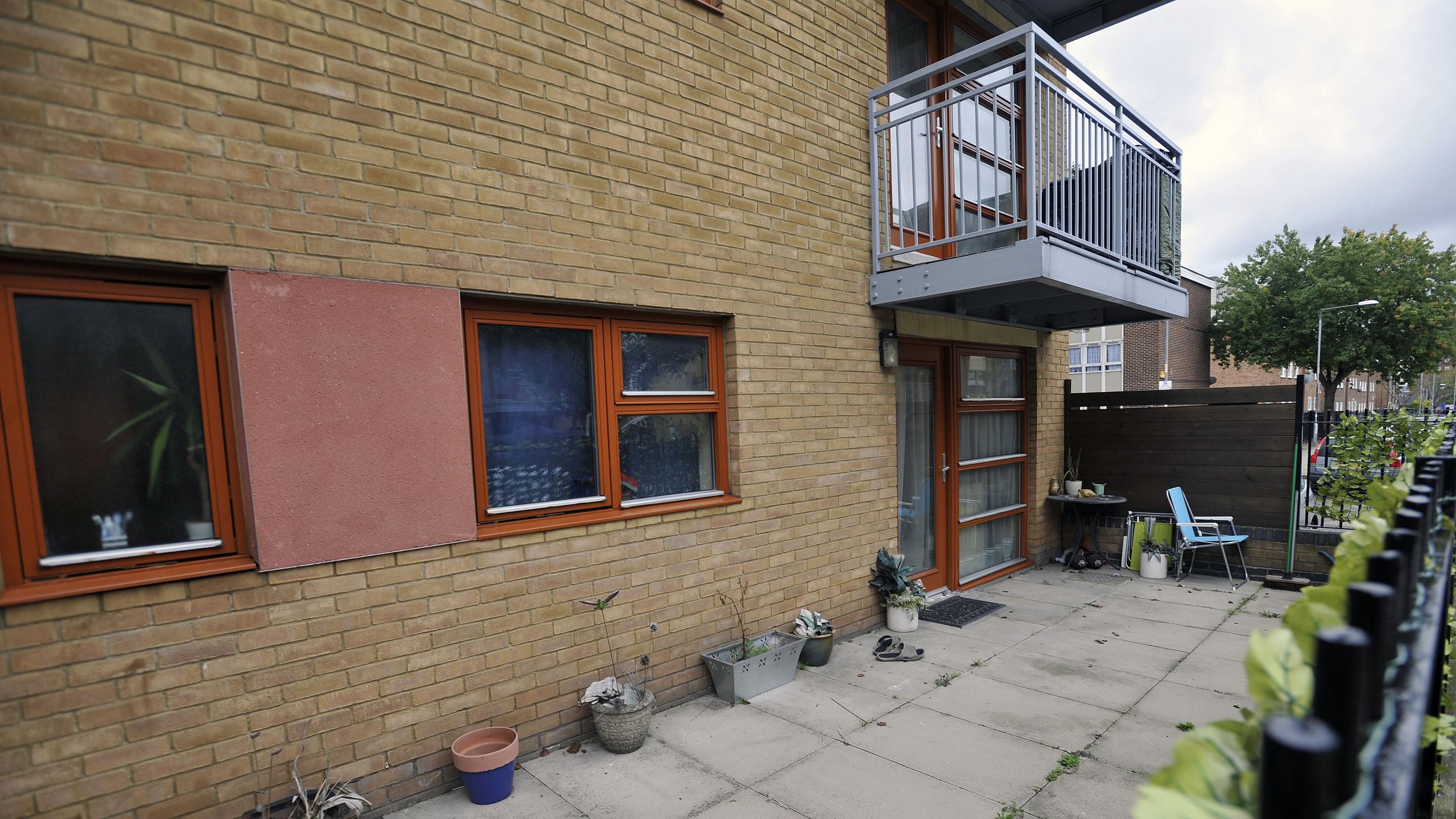
Stephen Port's flat in Barking
The flat brought new freedoms - there were parties, and partners were able to stay over.
But friends noticed a strange, childlike quality. He would sit watching cartoons and visit children's shops alone to buy himself toys, some of which were placed overlooking his bed.
Port's behaviour grew increasingly selfish and hedonistic - cheating on partners, taking drugs, working as a male escort and eventually acting as a pimp to others.
He became a habitual user of GHB, which can be taken as a powder but is usually dissolved in water, and a colourless liquid called GBL, which is drunk and then converts into GHB in the body.
The drugs can lead to feelings of euphoria in small doses but in only slightly larger amounts can cause unconsciousness and death.
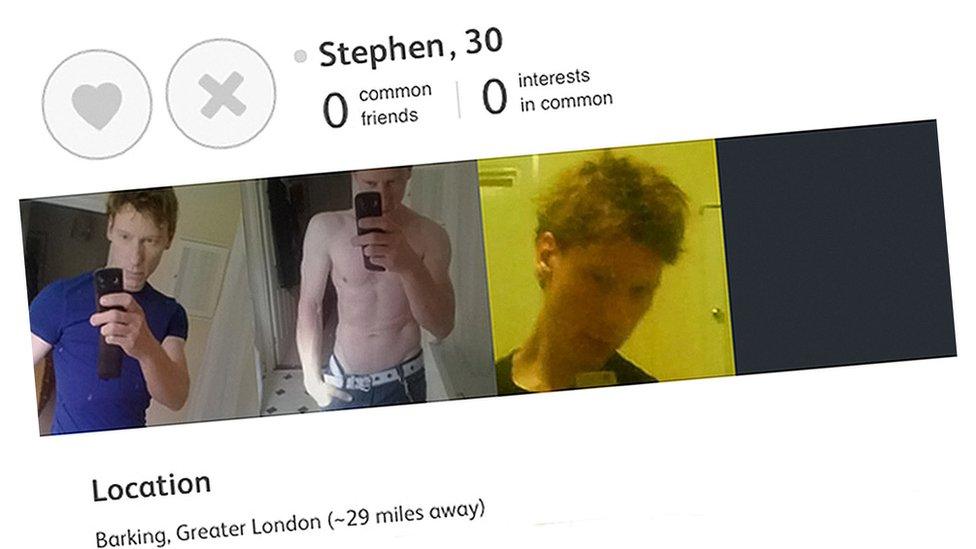
The rise of social media, which coincided with Port's move to Barking, saw him go out less often and instead retreat into the online world.
Port joined, left, and rejoined various social networks, sometimes using different names alongside his own picture or even creating entirely fictitious identities.
He used dating sites to seek out sexual encounters, particularly with youthful looking men, typically in their teens and early twenties, known as "twinks".
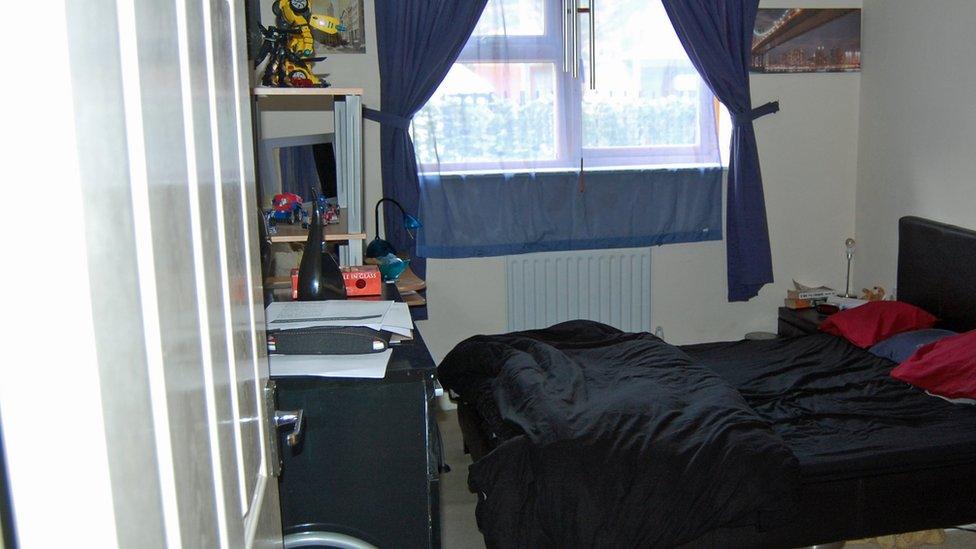
Stephen Port's bedroom
Some boyfriends, who were highly vulnerable young men, became prostitutes while in volatile relationships with Port.
They were advertised on escort sites with Port's phone number as the contact. Some of the photographs included in one escort profile showed one of the men naked and either asleep or unconscious on a bed.
Port regularly searched the internet for "drug rape" pornography.
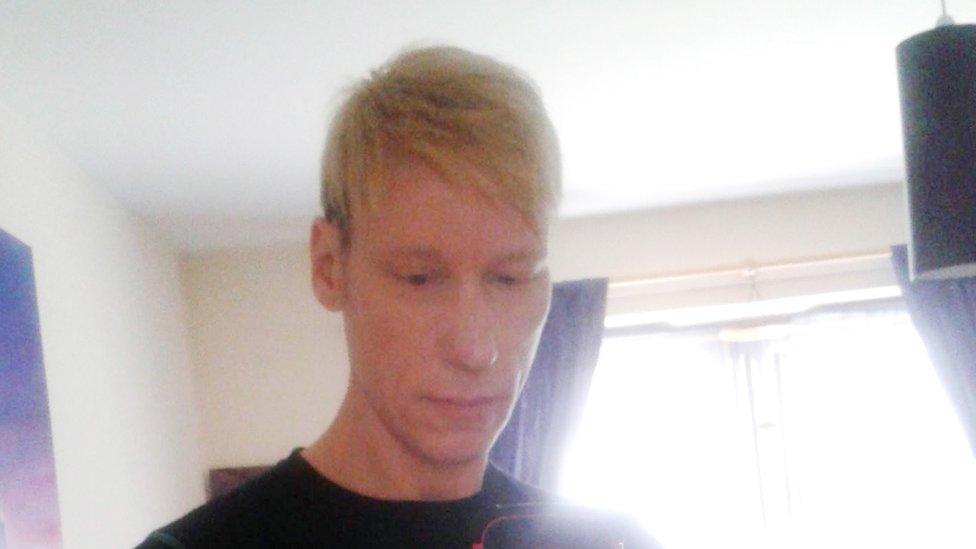
At least one of the online pornography videos he accessed featured a storyline about drugs being slipped into someone's drink.
It was a story that Port brought to life.
In early 2012 a student in his late teens spent a night with Port after they met on the gay dating app Grindr.
His first impressions after being collected at Barking station was that Port "was quite polite, friendly, nothing that would ring any alarm bells to me", the man later told Port's trial.
At the flat, Port put on an animated film in the lounge and offered a small glass of red wine that "tasted bitter, which I attributed to it being cheap".
After drinking the wine, the student "noticed a sludge in the bottom of the glass". He quickly felt "very dizzy and tired". Port suggested he go to lie down in the bedroom, which he did alone and immediately fell asleep.
When he awoke, Port was raping him. After being awake for about a minute he fell unconscious again.
He woke in the morning feeling "disorientated".
Port drove him to the station and spoke "as if nothing had happened". The man was too scared to say anything about the previous night.
Another man, a Muslim in his early twenties, who had never consumed alcohol or drugs, met Port on the Fitlads website in early summer 2014 and went to his flat on five occasions.
The first four visits were unremarkable but on the fifth, Port plied him with drugs.
Port gave the man poppers, a legal recreational drug, which he used. After a couple of minutes the young man fell asleep.
When he woke Port gave him a glass of clear liquid, saying it was water.
"As soon as I drank it, I went unconscious," the young man said. "The next thing I remember I was on the floor screaming and shouting. It was like I was going mad."
The man's underwear had been removed. Panic set in. He had to get home.
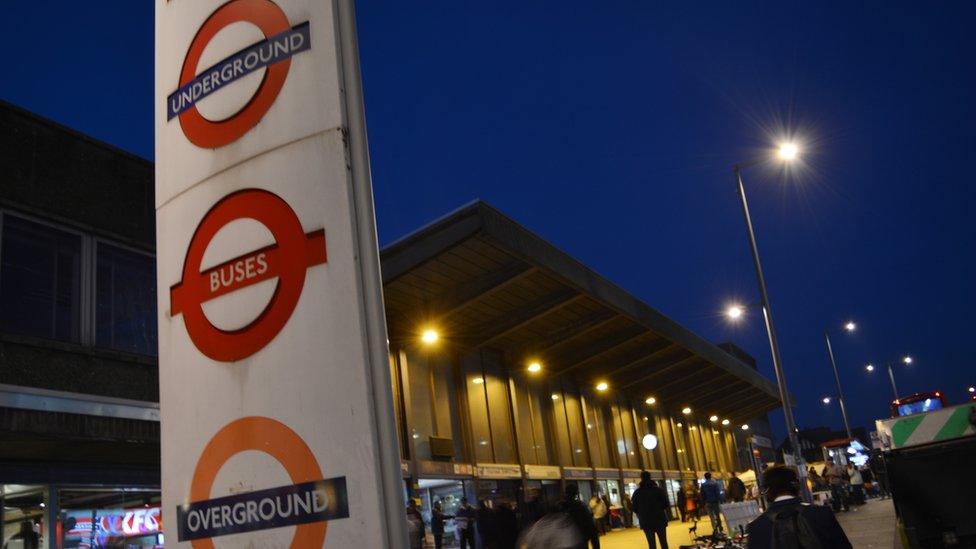
Port helped him to Barking station. "He was kind of dragging me along and holding me up."
The man recalls "screaming and shouting" during the journey. British Transport Police attended and an ambulance was called.
But the young man did not want to involve the police for fear of his parents - who knew nothing of his sexuality - discovering what had happened.
Port was "worried and jittery", according to police at the scene. He claimed the young man had arrived at his flat in that state and he was merely taking him home.
As there were no allegations of an offence, both men were allowed to leave.
Two weeks later Port met Anthony Walgate.
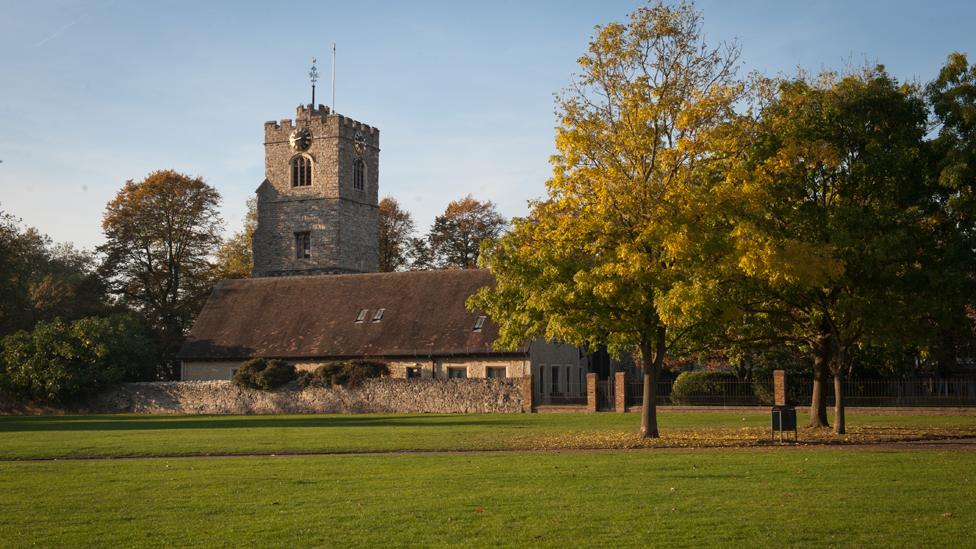
St Margaret's Church seen from the nearby green
The church of St Margaret of Antioch is an island of calm in the urban bustle of Barking, on the eastern side of London.
Sitting inside a pleasant park, and bordered on the north by a ruined abbey, it's a sudden scenic contrast from the busy surrounding roads and the high street leading away to the train station.
On the morning of 28 August 2014, while walking her dog, Barbara Denham found the body of a young man in an upright position in the south-west corner of St Margaret's graveyard.
It was the body of 22-year-old Gabriel Kovari.
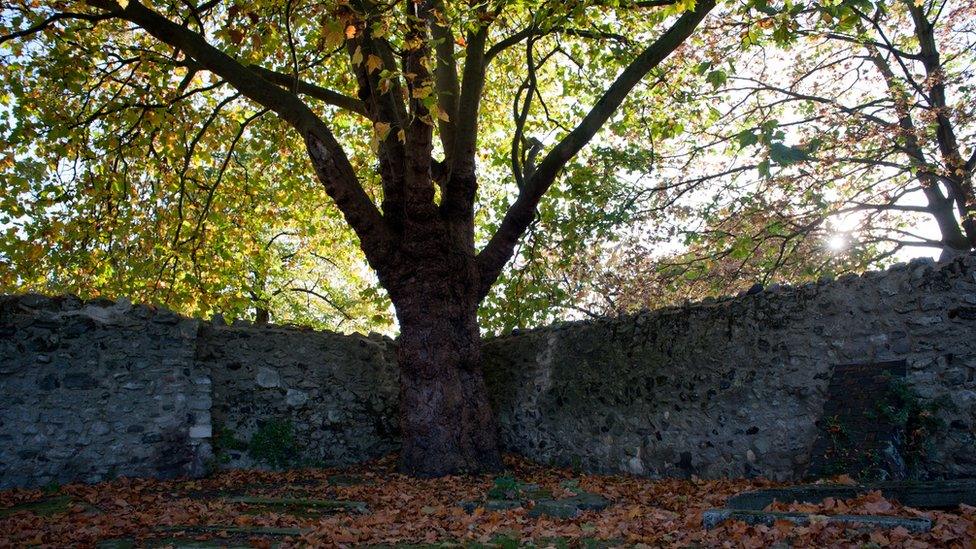
At the spot in St Margaret's graveyard where Daniel and Gabriel's bodies were found
Just over three weeks later, on 20 September 2014, Denham was again walking her dog, and found another body on the same spot.
It was Daniel Whitworth, 21.
While on bail for perverting the course of justice, Stephen Port had killed both men.
Barbara Denham: Finding two dead bodies in the same spot
Kovari, also known as Gabriel Kline, was a Slovakian who had come to London in spring 2014 from Spain, where he had been living with his boyfriend, Thierry Amodio.
He struggled to find a stable place to live until he met John Pape, who invited him to stay in the spare room of his south London flat.
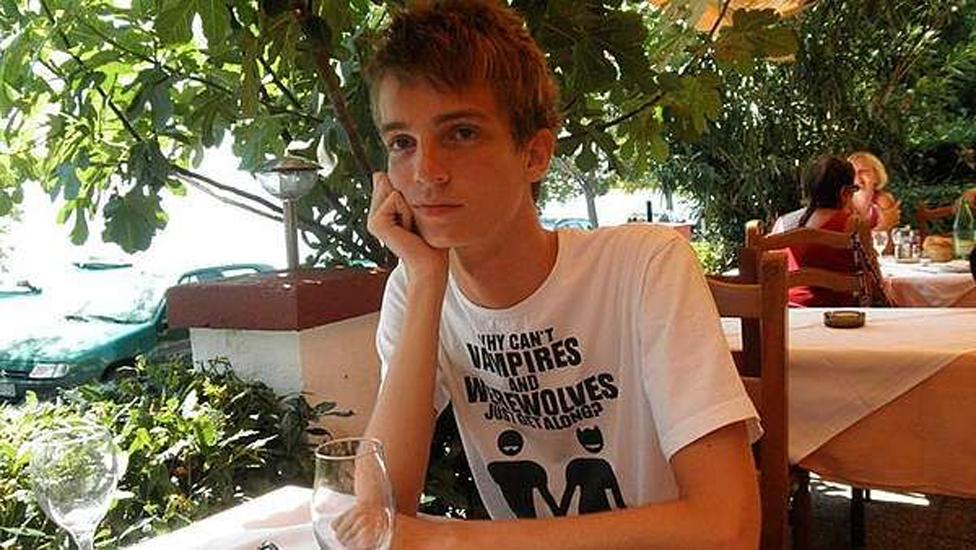
Gabriel Kovari
After several weeks with Pape, Kovari announced he had found a room to rent in Barking. Pape insisted he could stay longer, but Kovari wanted to move on.
On 23 August 2014, Kovari moved out. Three days later Pape texted Kovari: "Hey, hows it going in Barking?" but got no response.
On the day he moved out, Kovari had messaged another friend with a Google map pinpointing the location of his new home - Cooke Street, Barking.

Find out more
John Pape is also interviewed in the BBC Three documentary Grindr Killer. Watch it on iPlayer

Two days later the friend received a message from Kovari saying "I'm fine" and then a smiley face emoticon.
It was the last message he received from Kovari's phone.
Ryan Edwards was a neighbour and friend of Port, although as Port got ever more into drugs they had seen each other less.
On 24 August 2014 Port sent a message inviting Edwards to meet his "new Slovakian twink flatmate".
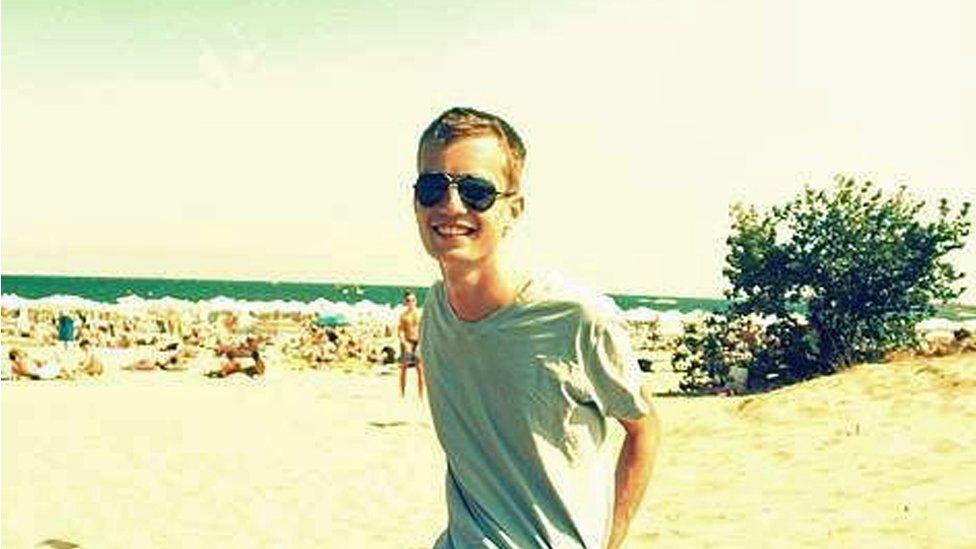
Gabriel Kovari
That night Edwards briefly met Kovari.
The next day Kovari messaged Edwards and said that "Stephen is not a nice person". Something had happened to make him unhappy in his new home.
In the afternoon of the following day Port sent a text message to Edwards who replied by asking: "How is Gabriel?"
Port said he had "gone to stay with another local guy… some soldier guy he had been chatting to online".
When Kovari's body was found on 28 August, he was wearing sunglasses. Two bags placed next to him contained his possessions. His clothing was pulled up to reveal his midriff, just as Anthony Walgate's had been.
John Pape was one of the first to be informed.
"Four police turned up at my door and they asked me 'do you know Gabriel Kovari?' and they said he'd died in a cemetery.
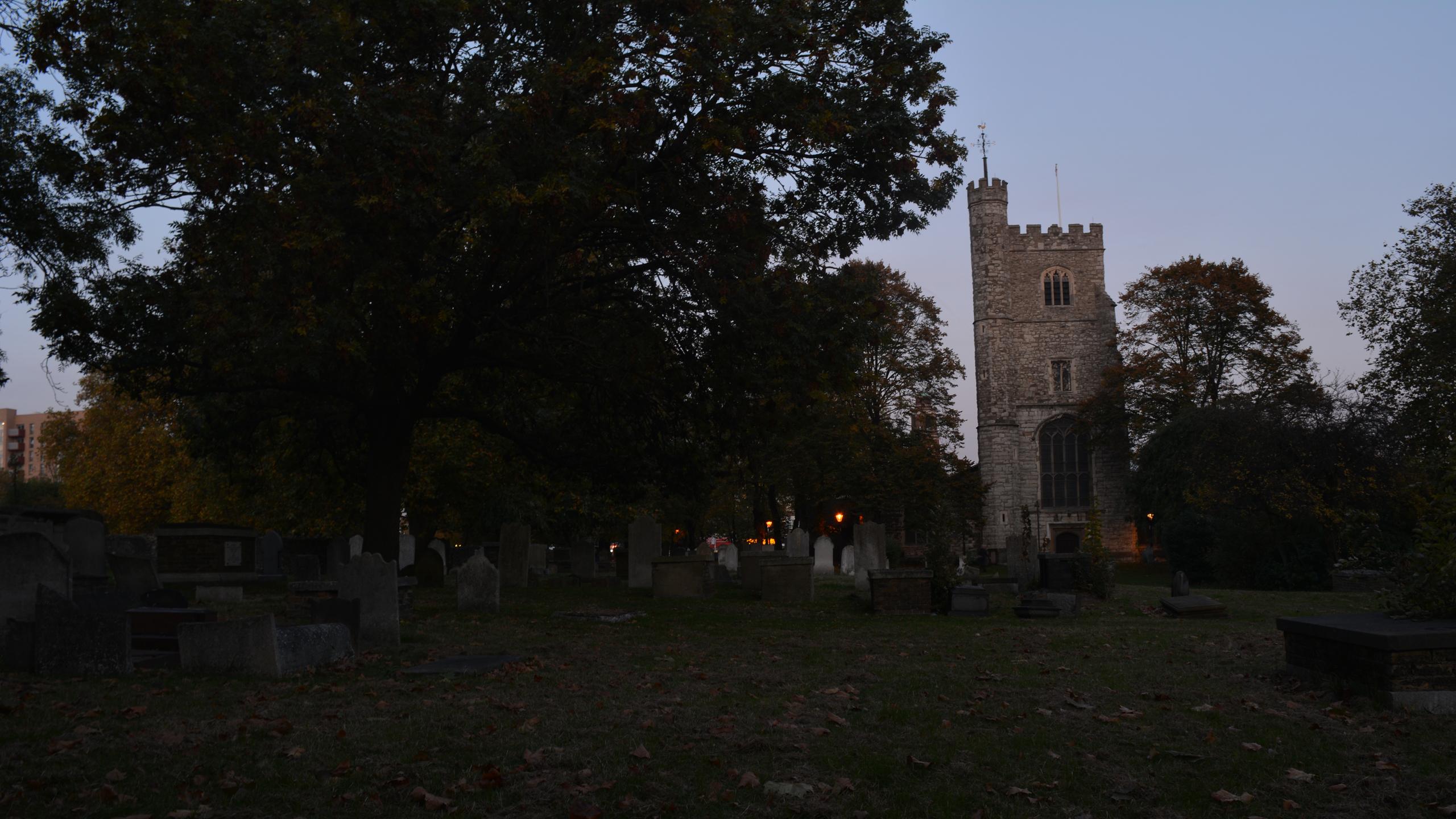
St Margaret's Church, Barking at night
"I felt a need to find out more. I ended up Googling the report of Gabriel's death."
Another unexplained death in June came up.
"It sounded so similar. Another young man - 22, 23 - who'd died in unexplained circumstances. Then I can remember looking how close St Margaret's Church was to Cooke Street where this first death had occurred. That set off alarm bells."

Within a few days Pape had contacted Gabriel's former boyfriend Thierry Amodio on Facebook with his concerns. "I was advising that he bring that to the attention of the police and the coroner."
Amodio was conducting his own research and, on 10 September, he messaged someone called Jon Luck after noticing he had started following Kovari on Facebook.
In his reply, Jon Luck expressed surprise on hearing Kovari had died and said they had spent two nights together around 22 August.
He said Kovari had been collected from his home by an older Irish man called Tony who drove a green Toyota.
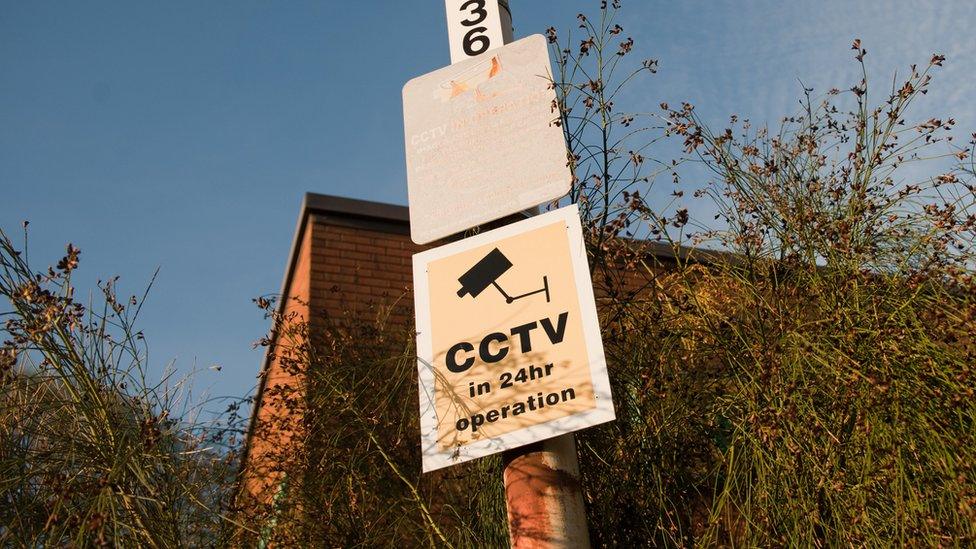
Jon Luck asked Amodio: "Will police want to speak to me as my DNA would be on him?"
Over the following days, Amodio kept asking for information about Tony in the green Toyota.
Then on 19 September 2014, Jon Luck said he had found Tony:
I text him and asked what happene to Gab and he said h left with a young guy about his age named Dan and they was heading to a party/orgy in Barking… Dan is tall, light brown hair he said, loks similar to Gab just a bit taller, very slim, when I told him Gab is dead, he said he don't want anything to do with it, leave him alone.
Jon Luck described the parties as places where older men "get young guys so high that they then just rape them".
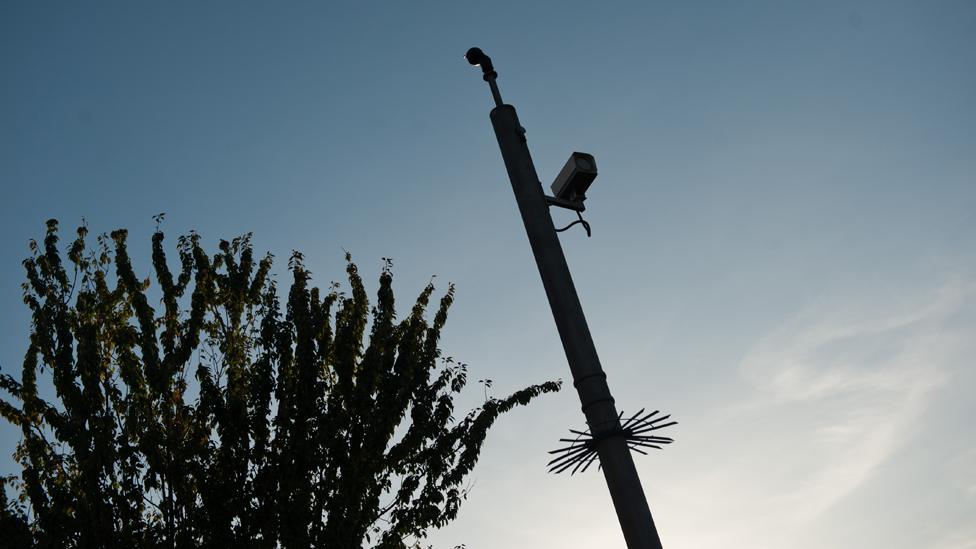
Two days later, Amodio messaged Jon Luck to say that the police had called to tell him of Dan's death.
Jon Luck replied:
Please don't let them arrest me, i will try find a much info as i can to help you… please let me know if you have any more info from the police, names etc.
Amodio asked him to call police and provided the number of a Barking and Dagenham detective, but Jon Luck said he was "scared" and made excuses.
The following morning Jon Luck made a telling suggestion:
maybe Dan knew what happened to Gab and could not life with the guilt or something like that.
That afternoon, the detective whose number had been given to Jon Luck responded to emails sent by Amodio the previous evening.
He had provided a link to Jon Luck's Facebook profile. He had also sent the detective a story from the Barking and Dagenham Post about the death of Anthony Walgate and asked: "Can this be related to Gabriel and Daniel?"
The detective replied that: "The news on the Barking and Dagenham post is nothing about Gabriel or Daniel.
"Have you contacted Jon Luck? Get Jon Luck to contact me."
Amodio emailed again four days later: "Any update regarding Gabriel? did Jon Luck call you?"
It took three days for a response: "I have not received any phone call or text messages or email from Jon Luck. I would appreciate it if you could get him to contact me."
Jon Luck never contacted detectives, nor they him. Had they traced the person behind the Jon Luck Facebook account they would have found Stephen Port.
The "Dan" whose death was linked to Gabriel Kovari was 21-year-old Daniel Whitworth from Gravesend, Kent.
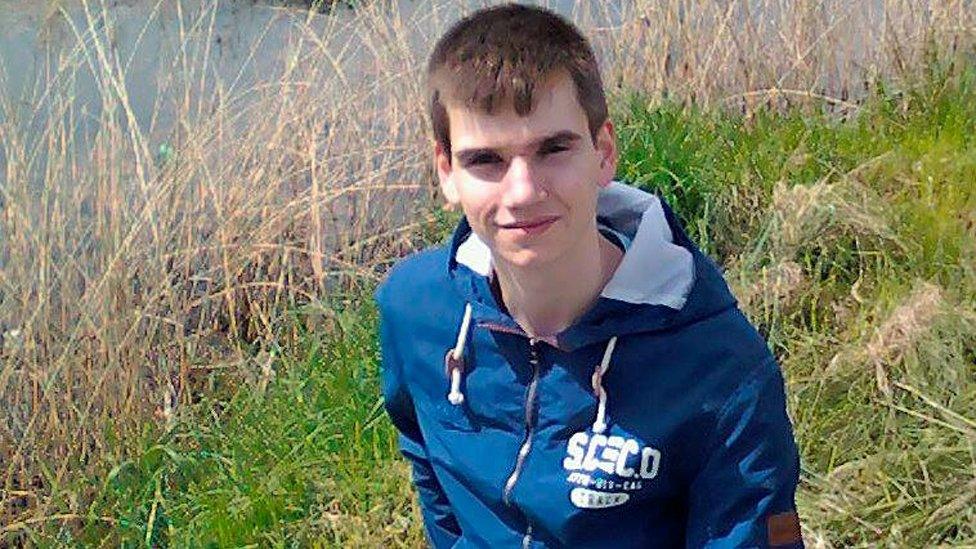
Daniel Whitworth
Whitworth's body was found on the same spot as Kovari's on the morning of 20 September 2014, only hours after Jon Luck had first mentioned "Dan".
He was sitting against the graveyard wall on top of a blue bedsheet.
The clothing on the top half of his body exposed his stomach, again like he had been dragged.
His mobile phone was missing and later tests showed that a small brown bottle found with his body contained GHB.
His left hand contained an apparent suicide note. It claimed responsibility for the death of Gabriel:
"I am sorry to everyone, mainly my family, but I can't go on anymore, I took the life of my friend Gabriel Kline, we was just having some fun at a mate's place and I got carried away and gave him another shot of G. I didn't notice while we was having sex that he had stopped breathing. I tried everything to get him to breathe again but it was too late, it was an accident, but I blame myself for what happened and I didn't tell my family I went out. I know I would go to prison if I go to the police and I can't do that to my family and at least this way I can at least be with Gabriel again, I hope he will forgive me.
"BTW Please do not blame the guy I was with last night, we only had sex then I left, he knows nothing of what I have done. I have taken what g I have left with sleeping pills so if it does kill me it's what I deserve. Feeling dizey now as took 10 min ago so hoping you understand my writing.
"I dropped my phone on way here so it should be in the grass somewhere. Sorry to everyone.
"Love always
"Daniel P W."
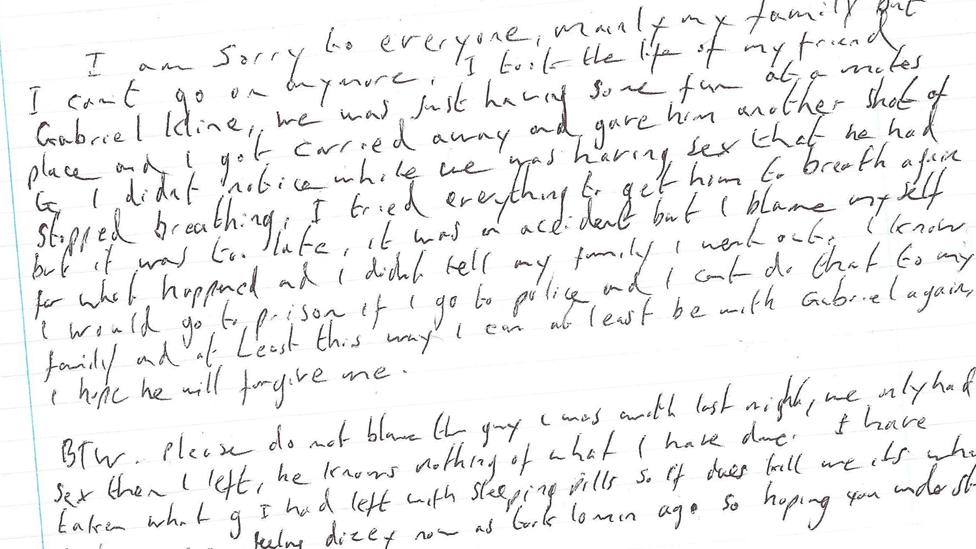
The fake suicide note left beside Daniel Whitworth's body
Whitworth was an ambitious young chef who was building a promising career. He lived in Kent with his long-term boyfriend Ricky Waumsley.
When apart they stayed in constant touch, and it was Waumsley who raised the alarm after his boyfriend did not return home.
Those who knew Whitworth were appalled at the suggestion he had killed someone. And they did not believe he had been suicidal.
But Barking and Dagenham Police, despite again seeking advice from a homicide assessment team, deemed the death non-suspicious and accepted the note at face value.
The prosecution told Port's eventual trial that detectives neither fully investigated Whitworth's movements in the hours before his death nor tried to find the person referred to in the note as "the guy I was with last night".
Had they done so it would have led them to Stephen Port.
Port's DNA was on the blue bedsheet, on Whitworth's body and on his clothes. It was also on a sleeve that the note was found in. The police already had his DNA on their database.
Port had met Whitworth on the Fitlads website in August that year.
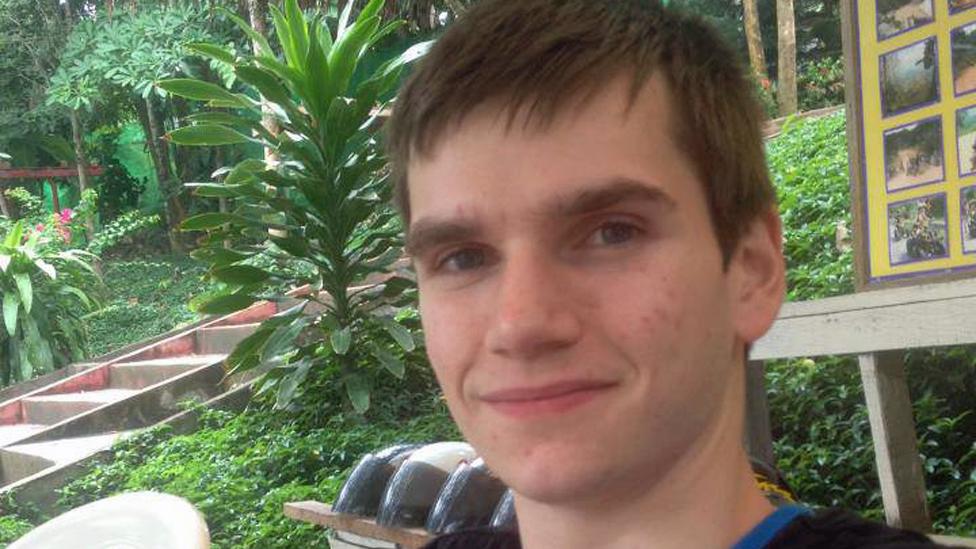
They exchanged messages. On 3 September, Port asked if they could go for a drink before dinner at his Barking flat: "Just so you can get to know me a bit so you know I'm not some psycho."
Whitworth was last seen by a colleague leaving work in Canary Wharf on 18 September. He mentioned he was going to meet friends in Barking.
Like both Walgate and Kovari, Whitworth was found to have died from an overdose of GHB. Tests showed he had also taken sleeping tablets, which was consistent with the "suicide note".
But the pathologist noted that "there was bruising below both arms in the armpit regions which is unlikely to have been caused accidentally and may have resulted from manual handling of the deceased, most likely prior to death".
Senior Barking and Dagenham detective, DCI Tony Kirk, told a local paper the deaths of Kovari and Whitworth were "unusual and slightly confusing" but not suspicious.
John Pape sought to raise concerns: "I felt like I had a moral responsibility to try and put pressure on the police investigation because I felt like I had hit a brick wall with them."
He spoke to Galop, an LGBT anti-violence charity, which passed on his concerns to police and were told that one death was a result of a self-administered overdose and the other was a suicide on the same spot in response to the first death.
Pape also wrote to campaigner Peter Tatchell. He expressed alarm and advised him to contact gay newspaper PinkNews, which has said it decided not to run a story after police insisted the deaths were not suspicious.
In January 2015, Port was charged with perverting the course of justice for lying about the circumstances of Anthony Walgate's death.
He pleaded guilty at Snaresbrook Crown Court in February and appeared for sentencing at the same court a month later.
The prosecutor said: "There is no suggestion that Mr Port bore any criminal responsibility for the death of the young man."
Walgate's friends, China Dunning and Kiera Brennan, were in court to see Port convicted.
"We spoke to the police after," says Dunning. "We were like 'look this isn't enough, this isn't right' and they basically said to us that there's only two people who know what happened that night: one of them's dead, one of them isn't going to say.
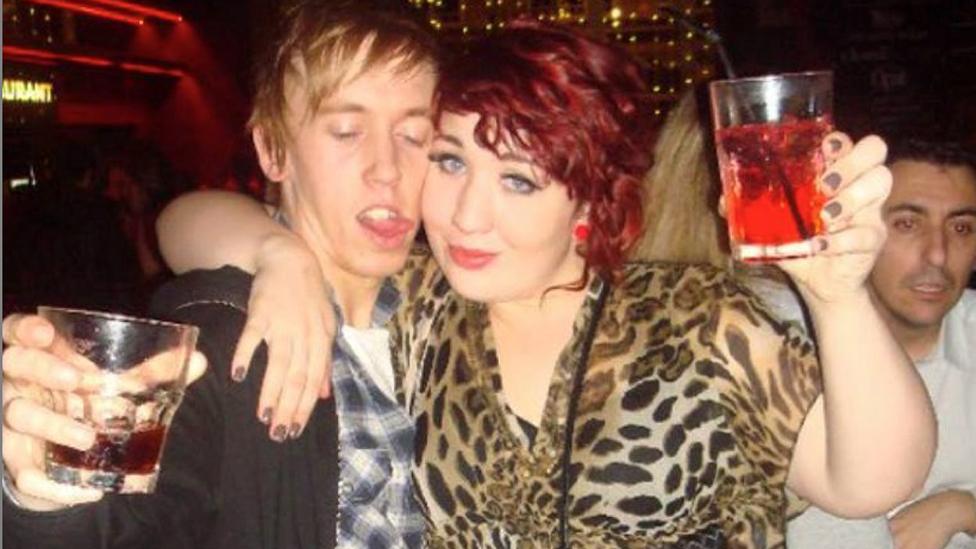
Anthony Walgate's friend, China Dunning, felt his death had not been properly investigated
"The cop got a bit of an attitude with me and he said 'look China we've done all we can do' - a bit like shut up and put it down now."
Dunning was convinced that Port had hurt other people and would again.
Port was sentenced to eight months' imprisonment.
He was released in June 2015, after serving little more than two months, just weeks before inquests into the deaths of Gabriel Kovari and Daniel Whitworth.
Following the route between Port's flat and St Margaret's Church
The inquests returned open verdicts, with coroner Nadia Persaud saying she had "some concerns surrounding Daniel's death which have not been answered by the police investigation".
The coroner said that "most concerning are the findings by the pathologist of manual handling prior to his death" and noted that "the bed sheet that he was found wrapped in was not forensically analysed, and the bottle of GBL which was found near him was also not tested for fingerprints or DNA".
She asked a detective why the bed sheet had not been tested.
He replied: "It is a consideration, but the circumstances at the time indicated towards no other external parties being involved at the time. The potential outcome of having the blanket analysed, the bed sheet analysed, could have been to identify maybe where he had been the night before, who had contact with him. But it wasn't submitted."
Even after this exchange, no tests were done.
There had been multiple opportunities to stop Port in his tracks.
Instead, he went on to kill a fourth man.
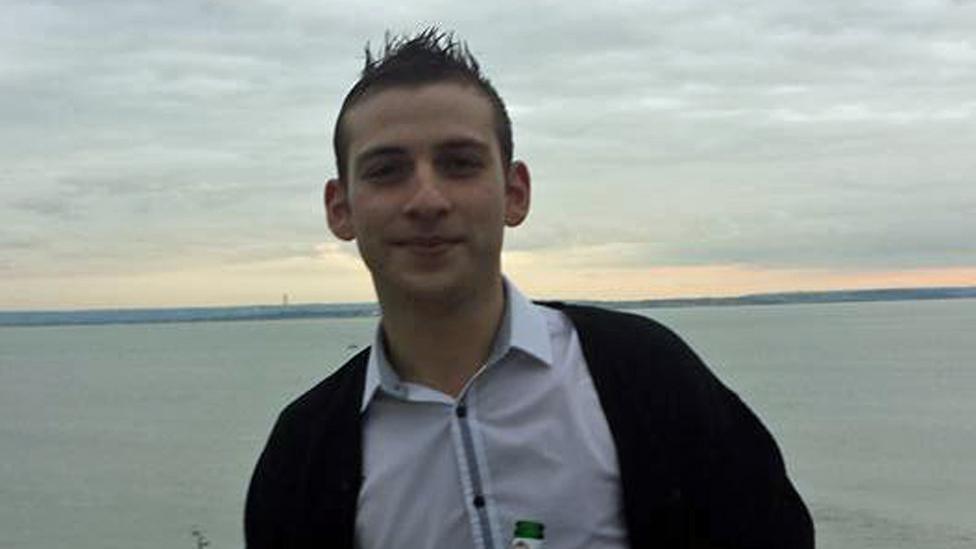
Jack Taylor
Jack Taylor was a 25-year-old from Dagenham who worked as forklift truck driver.
He had two older sisters, Donna and Jenny, and was living with his parents at the time he died.
Donna Taylor says he was a "true inspiration". Jenny Taylor says he was "always smiling, always laughing" but was also "very loving and caring".
Their brother had had several girlfriends and was not openly gay, but used the dating app Grindr as a way of meeting men.
In the early hours of Saturday 13 September 2015 he left a local social club after a night of drinking and went home.
He spent some time browsing the internet and just before 02:00 was contacted on Grindr by Stephen Port.
They decided to meet at Barking station at 03:00.
Within 36 hours he was found dead.
His body was propped against the other side of the graveyard wall from the spot where Gabriel Kovari and Daniel Whitworth were found.
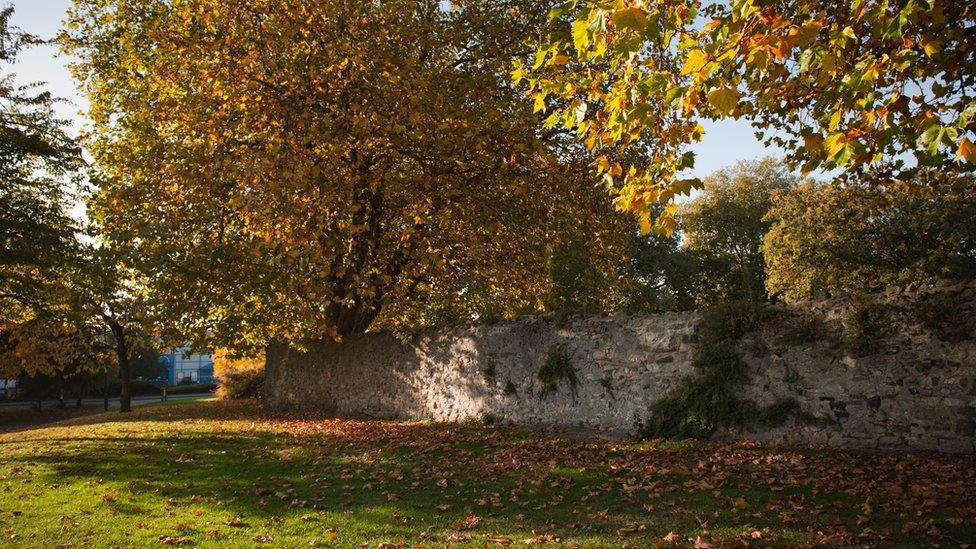
The wall where Jack's body was found
His shirt was pulled up over his belly. No mobile phone was present. A syringe was in one pocket and a small brown bottle in another.
Police did not regard the death as suspicious and seemingly treated it as a self-inflicted overdose.
The Taylor family did not accept the conclusion.
They say they were then not contacted by police for nearly two weeks. "I think it was more there's another young boy - a druggie - I really don't think they cared at all," Donna Taylor recalls.
The family began their own investigation.
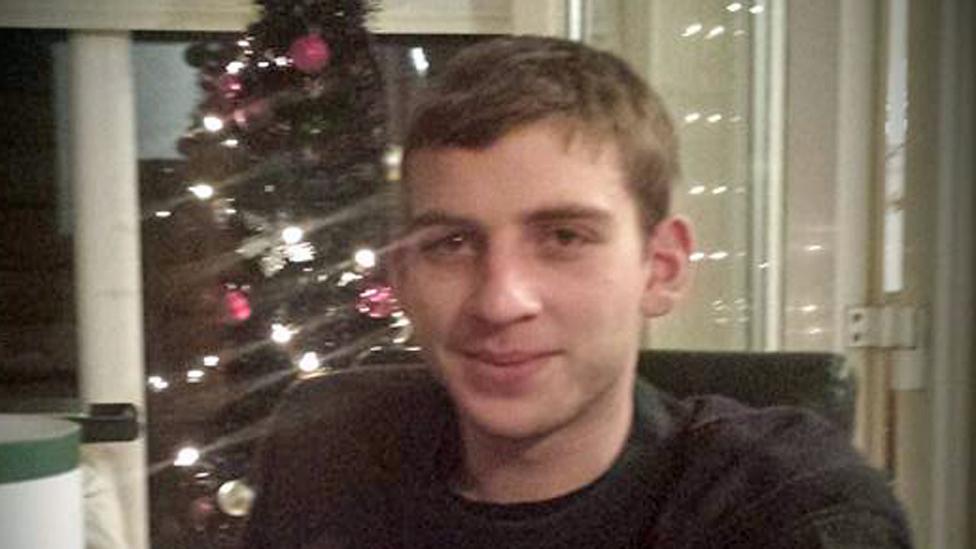
Jack Taylor was not a drug user
"We went through where Jack had been all weekend, who was the last people he was with, the area in which he was found," says Donna Taylor. "We were told it was known for drugs.
"So at the time we went on the internet and searched the area and that's how we came up with the other boys.
"We already knew that Jack wouldn't have gone and sat there and done that himself."
Taylor was not a drug user, so his family were outraged by the suggestion that he had taken an overdose.
"We literally went through where the boys were from, went back to their local papers of their area, what the press had wrote about them," says Donna Taylor. "We wrote down similarities, key points, and then compared them to Jack. Spoke to the police about that and at first obviously it got discarded. They were just having none of it."
Jenny Taylor recalls the police attitude: "Everything we were asking and everything we put to them they was telling us no. There was no chance that it was anything to do with the same situation. So the boys weren't linked to what had happened to Jack."
While at the police station they were told CCTV existed of Jack walking down the street with a man in the hours before his death.
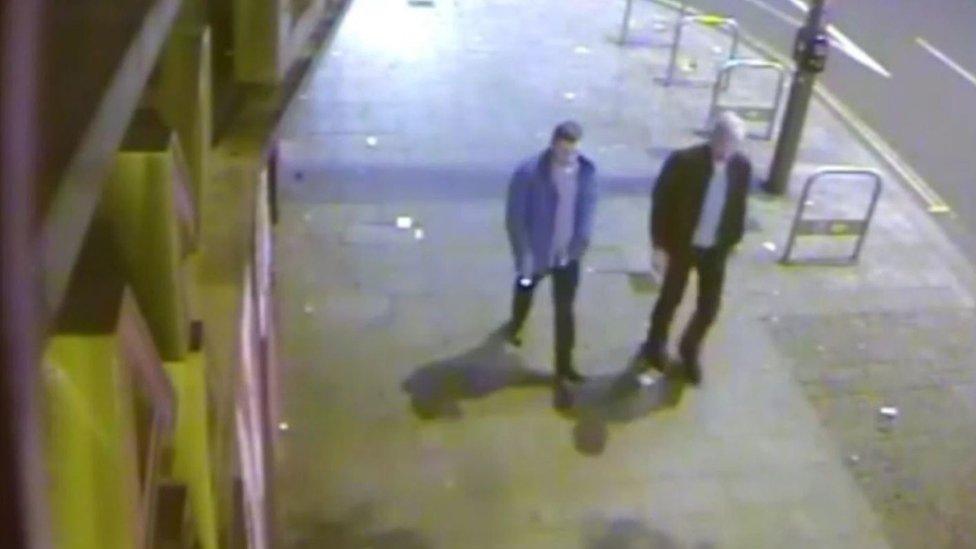
Jenny Taylor recalls that: "We asked for that to be put in the newspaper. To see if anyone knew him."
"It was said that it could be seen as a possibility, but it was unlikely because they didn't feel that Jack's death was suspicious," according to Donna Taylor.
"I think they kind of felt they had to do something rather than be seen to do absolutely nothing."
On 13 October 2015 the Met issued a CCTV image of Jack Taylor walking near Barking station with a tall, blond man.
Police received several calls, but it was actually a Barking and Dagenham officer who realised the man in the video was someone they already knew - Stephen Port.
On the morning of 15 October 2015 Port was arrested at his flat on suspicion of causing the deaths of the four young men by administering poison.
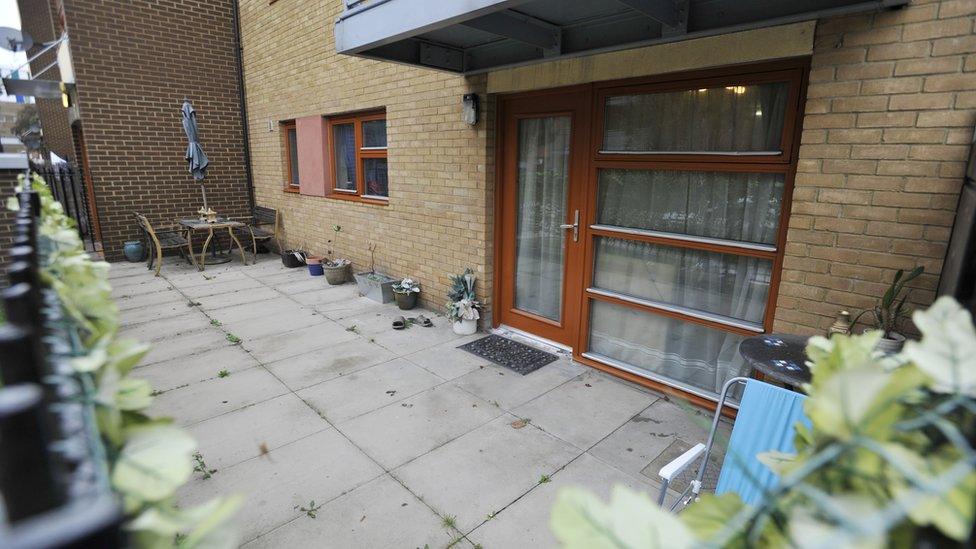
Stephen Port's flat in Barking
The same day the case was passed from police in Barking and Dagenham to a team of detectives led by DCI Tim Duffield from the Met's main Homicide and Major Crime Command.
Port was interviewed over the following four days.
His story about the death of Anthony Walgate was broadly repeated. He denied knowing the other dead men, or ever using GHB.
But he did spin a curious fiction about meeting Whitworth at sex parties held by an east London drug dealer.
Port denied any further knowledge of Whitworth and the "suicide note".

Inside Port's flat at Cooke Street
On 18 October 2015, Port was charged with four counts of murder.
Media coverage of his arrest brought eight men forward who described being drugged, raped and sexually assaulted at Port's flat after meeting him online.
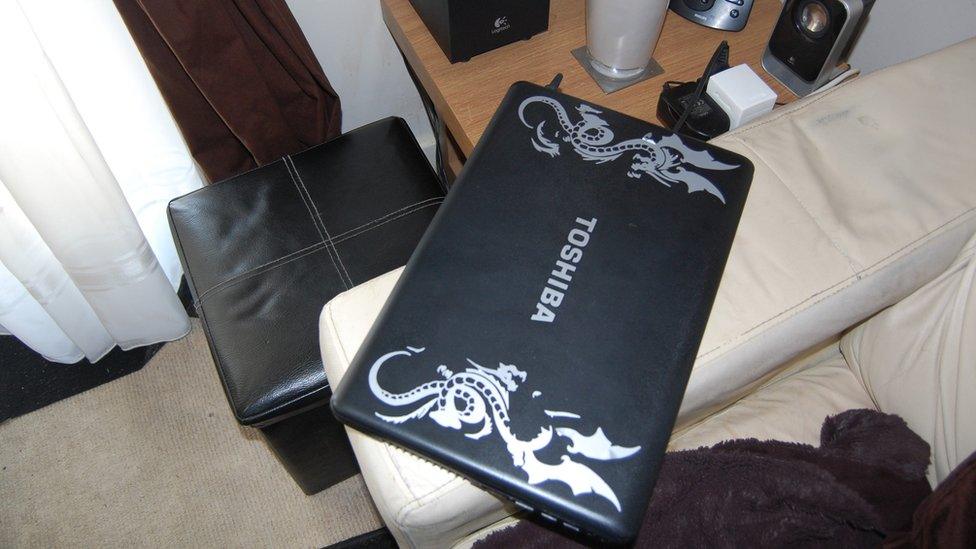
The men's accounts were all similar - Port spiked their drinks or injected them with a small syringe, of the type used to give children medicine.
At his eventual trial Port was convicted of a string of sexual offences against seven of the men, including four counts of rape, but acquitted of one charge of rape. He was also acquitted of all charges involving an eighth man.
A handwriting expert compared the "suicide note" with a sample of Daniel Whitworth's writing and confirmed he was not the author. The writing was Port's.
The paper on which it was written - and the plastic sleeve in which it had been placed - were from Port's flat.
Several key items were covered in Port's DNA, including the blue sheet found with Daniel Whitworth. It was from Port's own bed.
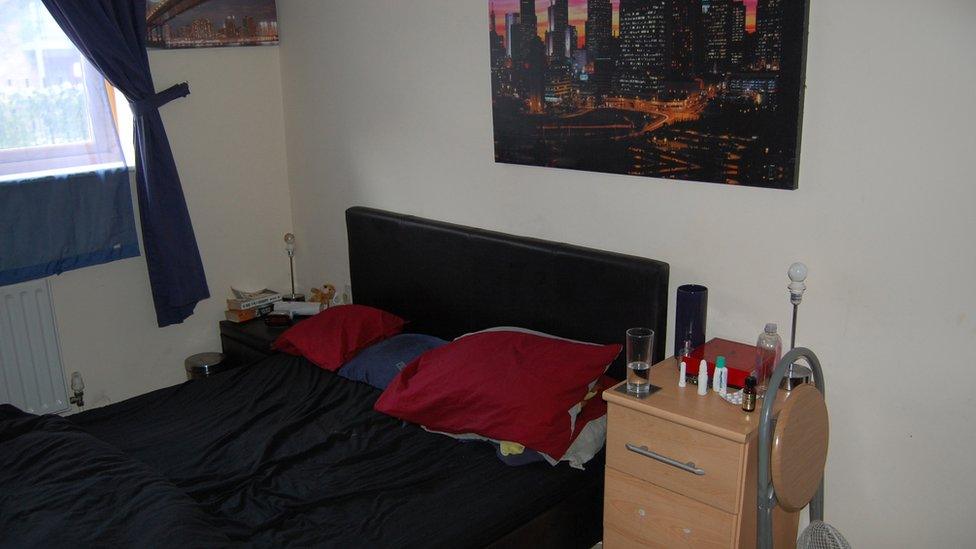
When the inquiry looked for Jon Luck they quickly found Port. The IP address associated with the Jon Luck account matched one used by Port - two of Port's laptops had been used to log in to it.
Police traced Tony, who Jon Luck had linked to Gabriel Kovari and Daniel Whitworth, but found that he had never met Port nor any of the dead men.
Port, masquerading as Jon Luck, had made contact online and picked up a few details which he had then tried to use to implicate him.
A mobile phone Port had once owned was found to contain 83 homemade sex videos including clips of him and others having sex with an unconscious man.

At trial Port looked completely different from the toned blond escort of his online selfies.
The toupee he had worn for over a decade was gone. He was nearly bald.
Accompanied by three security guards, he would shuffle quickly into the dock, pale-faced, soberly dressed and appearing older than his 41 years.
Some mornings he would wave keenly at his legal team, breaking into a grin as he did so.
He never looked across at the families of the dead men.
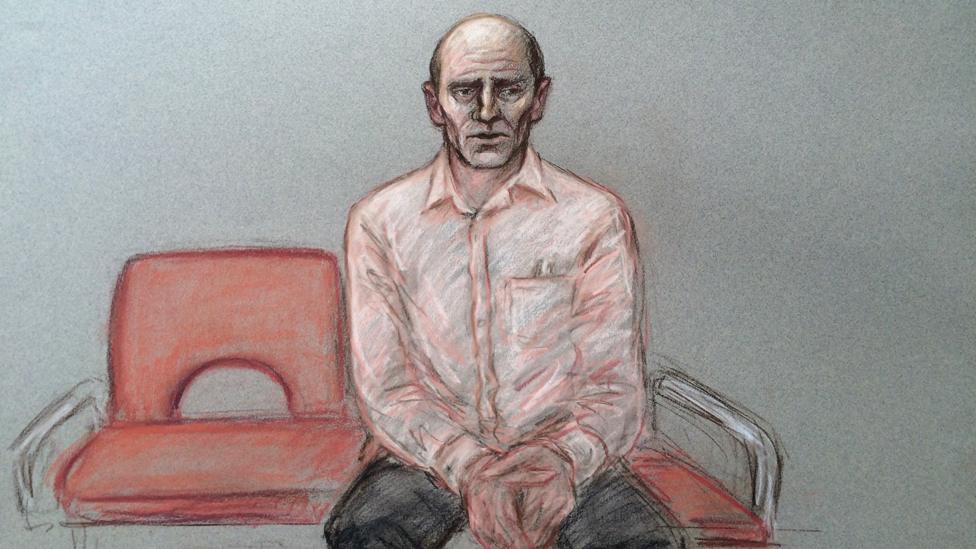
Court sketch of Port
In the witness box, he mumbled and was constantly asked to speak up, answered questions with evasive and unenlightening single word answers, and appeared blank and unaffected in the face of waves of distressing evidence.
When asked about videos of him having sex with an unconscious man, Port said they simply showed "the end of quite a few hours of normal sex".
Admitting lying to the police about the four deaths, he explained it by stating "the truth sounded like a lie, so I lied to make it sound like the truth".
In court, Port told even more implausible lies in order to explain his links to the dead men.
He painted a picture of the victims utterly divorced from reality - on the night of Kovari's death he was said to have attended a sex party with Whitworth. Port admitted writing the "suicide note" but claimed Whitworth dictated it to him. He alleged that Taylor, a sexually discreet non-drug user, took numerous drugs and suggested a two-hour sex session in the place where he was later found dead.
All this was nonsense. Port was, the prosecution said, a "habitual and compulsive liar."
DCI Tim Duffield, who led the successful investigation into Port, describes him as "one of the most dangerous individuals I've encountered".
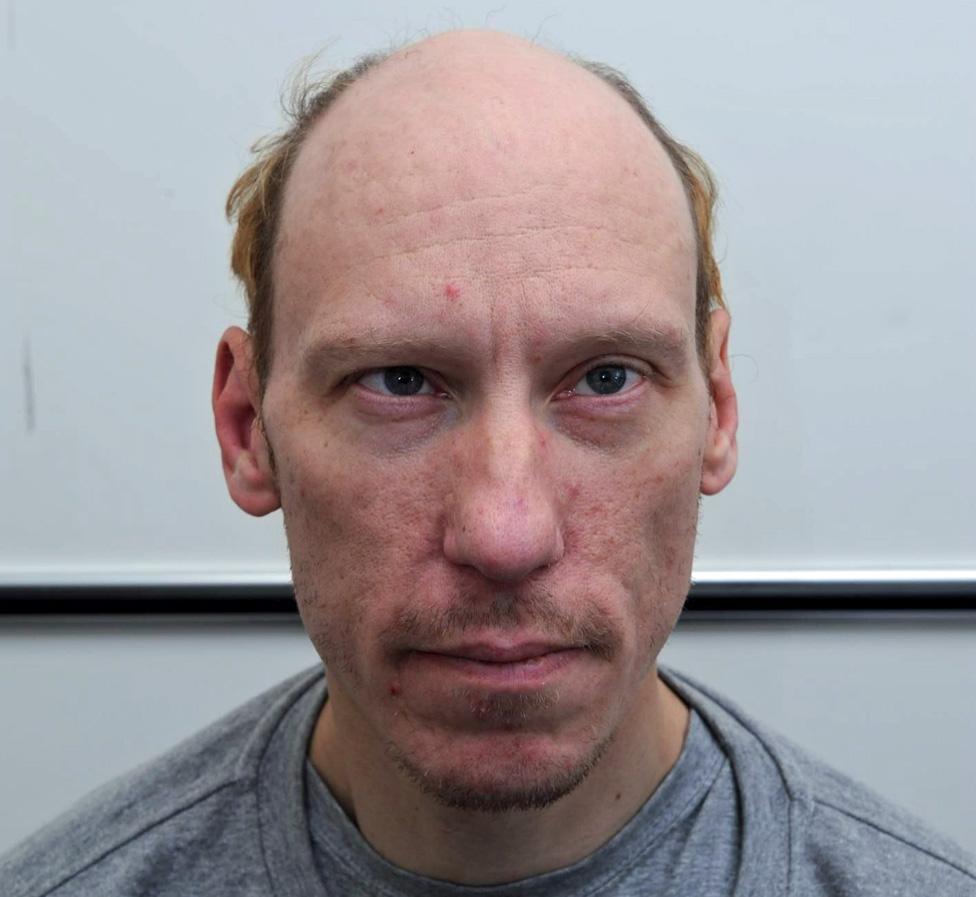
Stephen Port: "Highly devious, manipulative and self-obsessed"
"He's a voracious sexual predator who appears to have been fixated, nay obsessed, with surreptitiously drugging young, often vulnerable men for the exclusive purpose of rape. This is a highly devious, manipulative and self-obsessed individual." Port had never shown any remorse.
There will be an inquiry into the original investigations. Seventeen Met Police officers are under formal investigation by the Independent Police Complaints Commission. Fifteen are understood to be from Barking and Dagenham.
Commander Stuart Cundy, from the Met's Homicide and Major Crime Command, acknowledges that Port could possibly have been stopped earlier: "The evidence we have heard at the trial of Stephen Port does identify that there were potentially missed opportunities."
John Pape thinks the failings in the investigation can only be explained by poor understanding of the lives of gay men, and even prejudice.
"That maybe they thought: 'Oh that's what gay guys do'.
"I think if Barking and Dagenham Police had not taken the circumstances of those first three deaths at face value, if they'd questioned as a detective should do, if they'd empathised with the victims, then they would have connected them, and Stephen Port would not have been allowed to kill Jack Taylor."
Donna Taylor agrees.
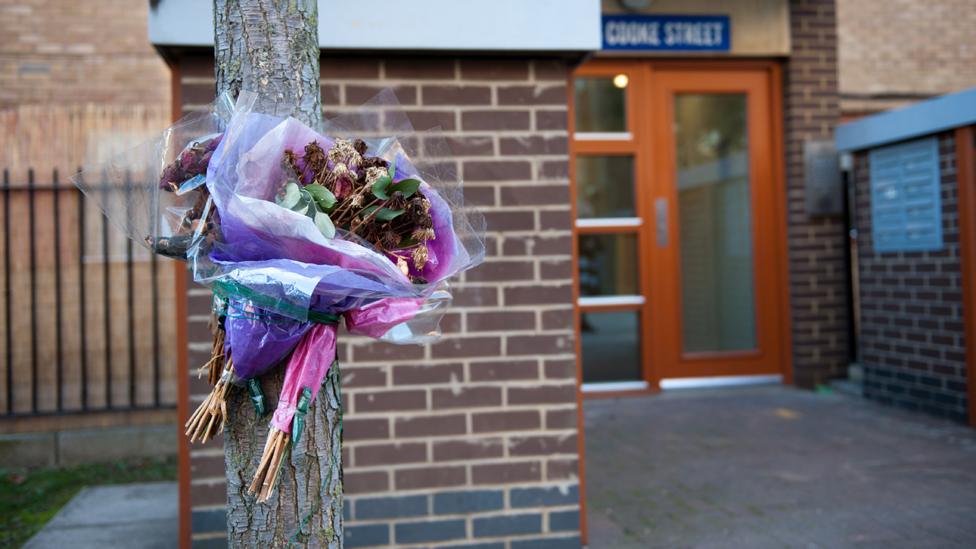
"It's awful because if they had done what they were supposed to and looked into things slightly different before, then Jack would still be here and maybe even possibly some of the other boys.
"It's obviously heart-wrenching for us as sisters, and obviously mum and dad, and obviously the other families. I don't think that any point it was taken seriously. I really don't. And it's a life at the end of the day. Somebody's life."
Daniel Whitworth's stepmother, Amanda Pearson, said in a victim impact statement: "We had a rich and fulfilling life ahead of us with Daniel, of that much I am sure, and it has been stolen from us. I cannot possibly describe the hole this has left us."
Anthony Walgate's friends are left only with memories.
"Anthony was a friend like no other, I doubt in this life I will ever meet anyone even a fraction like him," remembers Kiera Brennan.
None of the families of the four men will forget.
And now there will be an investigation into the actions of the police. They will have to explain why they missed so much.
Join the conversation - find us on Facebook, external, Instagram, external, Snapchat , externaland Twitter, external.